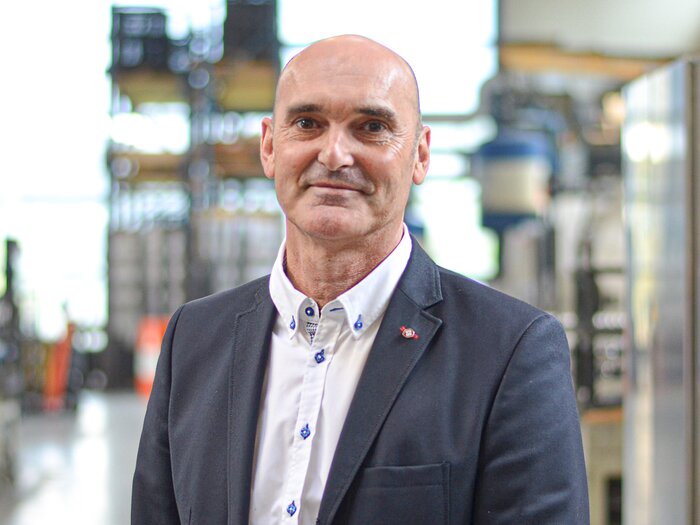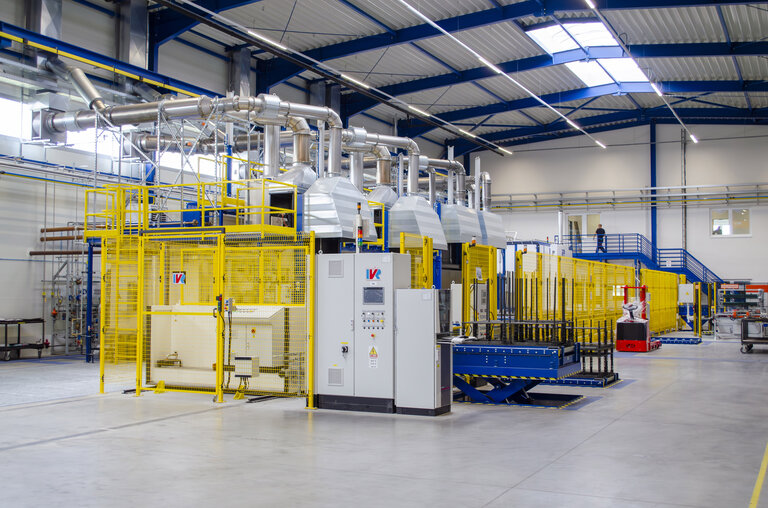RUBIG Slowakia
Modern heat treatment with short lead time.

Since 2005 RUBIG SK is your partner for almost all heat treatment processes. Plasma nitriding, case hardening, vacuum hardening, gas nitriding and annealing are offered in Prievidza / Slovakia.
Customers from different industries rely on our know-how. The majority of our customers come from the automotive, mechanical engineering and tool making industries. The other part consists of traditional, partly highly specialized metal processors.
You, too, can benefit from our state-of-the-art heat treatment technologies, which enable us to meet the highest quality requirements with optimized throughput times! Whether you want to treat components with (over) large dimensions, parts in large quantities or special individual parts, we have the right solution and the right system for your project. Of course, our well-equipped materials laboratory can also provide you with detailed technical data about your workpiece. This is what our Slovakian sales and production office stands for.
How can we support?
We are happy to advise you personally. Contact us and get detailed information about the treatment you want!

A new case hardening line was put into operation in 2023. Up to four IVR chamber furnaces, each with a load capacity of 2.3 tons, ensure optimum hardness. The line is supplemented with a fully automatic straightening press with integrated crack inspection and a solvent washing machine, which ensures maximum cleanliness, especially after heat treatment.
Cost savings of up to - 35% compared to conventional furnace sizes!
Plasma nitriding is a thermochemical surface hardening process in which ionized nitrogen atoms are introduced into the surface of a component within a plasma environment. The high-energy plasma results in the formation of a hard nitrided layer with excellent wear resistance and dimensional accuracy. An optional post-oxidation treatment can further enhance corrosion resistance. This process is particularly well-suited for highly stressed tools, dies, and precision components.
In case hardening, the component is first carburized in a carbon-rich atmosphere and then hardened through quenching. The outcome is a hard, wear-resistant surface layer combined with a tough, ductile core. The hardness and case depth can be precisely controlled, making this method especially suitable for transmission parts, gears, shafts, and other heavily loaded machine elements.
Vacuum hardening is a high-precision heat treatment process in which the component is heated to hardening temperature in an oxygen-free environment and subsequently quenched under controlled gas pressure. This results in a clean, bright surface and minimal dimensional distortion. The process is ideal for high-alloy steels, tool and die steels, and delicate precision parts.
Gas nitriding is a thermochemical surface hardening method in which nitrogen atoms diffuse into the surface of a workpiece from a nitrogen-containing gas medium. This forms a hard diffusion layer with high wear resistance and improved friction properties. Thanks to precise temperature control, dimensional changes are minimal. The process is particularly suitable for components requiring high surface hardness with low thermal stress.
Modern chamber furnaces with vertical loading and unloading systems offer maximum process reliability for the heat treatment of medium to large-sized components. By combining multiple furnaces with automated batch handling and integrated crack detection systems, high throughput with consistently reproducible quality is achieved. Complementary systems such as solvent cleaning units ensure maximum component cleanliness after the hardening process.
Annealing encompasses a range of heat treatment processes aimed at specifically modifying the microstructure and mechanical properties of metals. Depending on the objective, methods such as stress-relief annealing, soft annealing, normalizing, or solution annealing may be applied. These techniques serve to reduce internal stresses, improve formability, or restore defined microstructural conditions after cold working.
RUBIG underlines its industry leadership with important certifications that guarantee the highest standards in quality, environmental compatibility and safety.